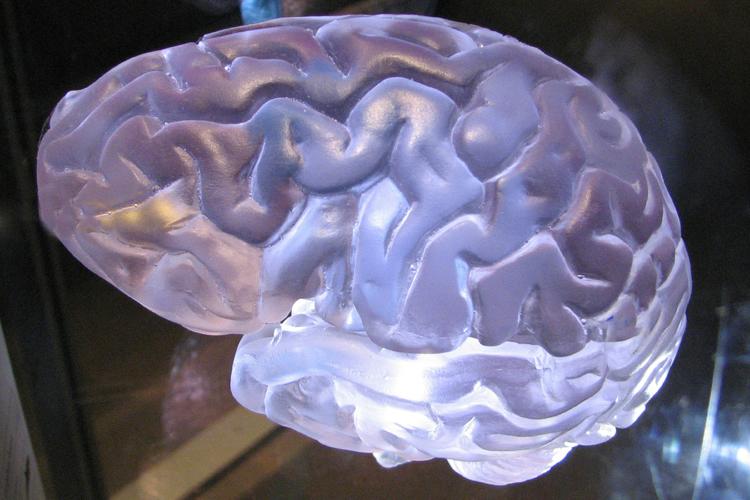Blog
Coacing
The Gut-Brain Axis and Coaching: Why When You Eat Affects How You Think
Introduction
We often treat the brain and body as separate—but science shows they’re deeply connected. Especially through the gut-brain axis.
Intermittent fasting not only resets the digestive system but also supports better brain health, emotional balance, and decision-making. Add coaching support, and you create a pathway to total mind-body alignment.
Here’s how it works.
1. What Is the Gut-Brain Axis?
The gut-brain axis is a two-way communication system between the enteric nervous system…
Beyond Willpower: How Intermittent Fasting Enhances Motivation and Emotional Control
Introduction
Ever felt like your willpower just wasn’t enough?
The problem might not be your mindset—but your brain chemistry.
Intermittent fasting can enhance dopamine receptor sensitivity, stabilize mood, and improve executive functioning—all vital for motivation and discipline. When paired with coaching, this neural shift becomes a foundation for powerful behavior change.
Let’s dive in.
1. The Dopamine Connection
Dopamine is the neurotransmitter responsible for motivation, reward, and d…
How Mindfulness Neurocoaching Rewires Your Brain to Boost Interoceptive Awareness
Introduction:
The science behind mindfulness neurocoaching is as fascinating as its practical benefits. Recent neuroscience research reveals how mindful attention to bodily sensations physically changes your brain, enhancing your ability to perceive internal signals and manage emotions more effectively.
Key Brain Regions Involved
- Insula: The brain’s interoceptive hub, responsible for processing sensations from inside your body.
- Anterior Cingulate Cortex (ACC):Helps regulate attention and emo…
The Science of Lasting Weight Loss — How Neurocoaching Works
Introduction
Why do people return to old habits even when they know better?
The answer lies in neural pathways — the automatic patterns your brain forms over time. Whether it's late-night snacking, emotional eating, or yo-yo dieting, most behavior is driven by subconscious brain loops.
That’s why neurocoaching is revolutionizing weight management — by helping clients rewire those patterns for good.
What Is Neurocoaching, Exactly?
Neurocoaching integrates coaching techniques with brain scien…
Why Traditional Coaching Isn’t Enough for Long-Term Weight Loss
Introduction
You’ve likely heard it before: “Change your thoughts, change your life.” That’s the cornerstone of cognitive-behavioral coaching (CBC) — a time-tested, structured approach that helps people reframe negative thinking and create healthier behaviors.
But when it comes to long-term weight management, CBC often falls short. Why? Because thoughts alone aren’t enough. Real, sustainable change happens on a deeper level — in the brain’s automatic systems and emotional wiring.
In this post…
From Insight to Integration – Why Coaching Works at the Brain Level
Introduction
We’ve all had those aha moments—a breakthrough in a coaching session that feels life-changing. But what makes it stick? That’s where the brain comes into play. For change to last, it must move from insight into integration—and neuroplasticity is the bridge.
🧩 Insight Isn’t Enough Without Integration
Clients may realize they want to:
- Quit people-pleasing
- Set boundaries
- Stop procrastinating
But unless the brain builds new pathways, those old patterns will persist.
That’s why…
The Science Behind Neurocoaching: How It Shapes Your Brain for Success
Introduction:
Neurocoaching is more than just a trendy buzzword — it’s rooted in solid neuroscience. Understanding how neurocoaching changes your brain can inspire confidence in its effectiveness for enhancing goal persistence and cognitive flexibility.
Brain Plasticity: The Foundation of Neurocoaching
At the core of neurocoaching is the concept of brain plasticity — the brain’s ability to form new neural connections throughout life. This means your brain can literally be rewired through intentio…
3 Core Brain-Based Coaching Tools That Transform Emotional Eating
Introduction
Imagine giving clients tools that don’t just address what they eat—but why they eat emotionally in the first place.
Brain-based coaching protocols provide just that. Here are 3 powerful tools grounded in neuroscience that you can start using right away.
1. The “Name It to Tame It” Technique
Inspired by Dr. Dan Siegel, this method involves helping clients label their emotional state before they eat.
Why it works: Naming emotions activates the prefrontal cortex, calming the emoti…
Integrating AI-Enhanced TMS and Virtual Coaching Into Your PTSD Treatment Practice
Introduction
As PTSD treatment advances, coaches and therapists face exciting opportunities to enhance their practice through technology. AI-enhanced TMS combined with virtual coaching offers a powerful new model for delivering personalized, effective care. But how can mental health professionals integrate these innovations successfully?
Understanding the Technologies
- AI-Enhanced TMS: Utilizes machine learning to optimize brain stimulation protocols for PTSD clients.
- Virtual Coaching: Uses A…
Virtual Coaching: Supporting PTSD Recovery Beyond the Clinic
Introduction
Recovery from PTSD doesn’t end when the therapy session is over. For many, ongoing support is crucial to maintaining progress and building resilience. Virtual coaching, empowered by AI, is emerging as a powerful tool to extend care beyond the clinic walls.
What is Virtual Coaching?
Virtual coaching uses digital platforms to provide clients with real-time guidance, motivation, and coping strategies from anywhere in the world. With AI integration, virtual coaches can analyze client beh…
Blog
Coacing
The Gut-Brain Axis and Coaching: Why When You Eat Affects How You Think
Introduction
We often treat the brain and body as separate—but science shows they’re deeply connected. Especially through the gut-brain axis.
Intermittent fasting not only resets the digestive system but also supports better brain health, emotional balance, and decision-making. Add coaching support, and you create a pathway to total mind-body alignment.
Here’s how it works.
1. What Is the Gut-Brain Axis?
The gut-brain axis is a two-way communication system between the enteric nervous system…
Beyond Willpower: How Intermittent Fasting Enhances Motivation and Emotional Control
Introduction
Ever felt like your willpower just wasn’t enough?
The problem might not be your mindset—but your brain chemistry.
Intermittent fasting can enhance dopamine receptor sensitivity, stabilize mood, and improve executive functioning—all vital for motivation and discipline. When paired with coaching, this neural shift becomes a foundation for powerful behavior change.
Let’s dive in.
1. The Dopamine Connection
Dopamine is the neurotransmitter responsible for motivation, reward, and d…
How Mindfulness Neurocoaching Rewires Your Brain to Boost Interoceptive Awareness
Introduction:
The science behind mindfulness neurocoaching is as fascinating as its practical benefits. Recent neuroscience research reveals how mindful attention to bodily sensations physically changes your brain, enhancing your ability to perceive internal signals and manage emotions more effectively.
Key Brain Regions Involved
- Insula: The brain’s interoceptive hub, responsible for processing sensations from inside your body.
- Anterior Cingulate Cortex (ACC):Helps regulate attention and emo…
The Science of Lasting Weight Loss — How Neurocoaching Works
Introduction
Why do people return to old habits even when they know better?
The answer lies in neural pathways — the automatic patterns your brain forms over time. Whether it's late-night snacking, emotional eating, or yo-yo dieting, most behavior is driven by subconscious brain loops.
That’s why neurocoaching is revolutionizing weight management — by helping clients rewire those patterns for good.
What Is Neurocoaching, Exactly?
Neurocoaching integrates coaching techniques with brain scien…
Why Traditional Coaching Isn’t Enough for Long-Term Weight Loss
Introduction
You’ve likely heard it before: “Change your thoughts, change your life.” That’s the cornerstone of cognitive-behavioral coaching (CBC) — a time-tested, structured approach that helps people reframe negative thinking and create healthier behaviors.
But when it comes to long-term weight management, CBC often falls short. Why? Because thoughts alone aren’t enough. Real, sustainable change happens on a deeper level — in the brain’s automatic systems and emotional wiring.
In this post…
From Insight to Integration – Why Coaching Works at the Brain Level
Introduction
We’ve all had those aha moments—a breakthrough in a coaching session that feels life-changing. But what makes it stick? That’s where the brain comes into play. For change to last, it must move from insight into integration—and neuroplasticity is the bridge.
🧩 Insight Isn’t Enough Without Integration
Clients may realize they want to:
- Quit people-pleasing
- Set boundaries
- Stop procrastinating
But unless the brain builds new pathways, those old patterns will persist.
That’s why…
The Science Behind Neurocoaching: How It Shapes Your Brain for Success
Introduction:
Neurocoaching is more than just a trendy buzzword — it’s rooted in solid neuroscience. Understanding how neurocoaching changes your brain can inspire confidence in its effectiveness for enhancing goal persistence and cognitive flexibility.
Brain Plasticity: The Foundation of Neurocoaching
At the core of neurocoaching is the concept of brain plasticity — the brain’s ability to form new neural connections throughout life. This means your brain can literally be rewired through intentio…
3 Core Brain-Based Coaching Tools That Transform Emotional Eating
Introduction
Imagine giving clients tools that don’t just address what they eat—but why they eat emotionally in the first place.
Brain-based coaching protocols provide just that. Here are 3 powerful tools grounded in neuroscience that you can start using right away.
1. The “Name It to Tame It” Technique
Inspired by Dr. Dan Siegel, this method involves helping clients label their emotional state before they eat.
Why it works: Naming emotions activates the prefrontal cortex, calming the emoti…
Integrating AI-Enhanced TMS and Virtual Coaching Into Your PTSD Treatment Practice
Introduction
As PTSD treatment advances, coaches and therapists face exciting opportunities to enhance their practice through technology. AI-enhanced TMS combined with virtual coaching offers a powerful new model for delivering personalized, effective care. But how can mental health professionals integrate these innovations successfully?
Understanding the Technologies
- AI-Enhanced TMS: Utilizes machine learning to optimize brain stimulation protocols for PTSD clients.
- Virtual Coaching: Uses A…
Virtual Coaching: Supporting PTSD Recovery Beyond the Clinic
Introduction
Recovery from PTSD doesn’t end when the therapy session is over. For many, ongoing support is crucial to maintaining progress and building resilience. Virtual coaching, empowered by AI, is emerging as a powerful tool to extend care beyond the clinic walls.
What is Virtual Coaching?
Virtual coaching uses digital platforms to provide clients with real-time guidance, motivation, and coping strategies from anywhere in the world. With AI integration, virtual coaches can analyze client beh…










